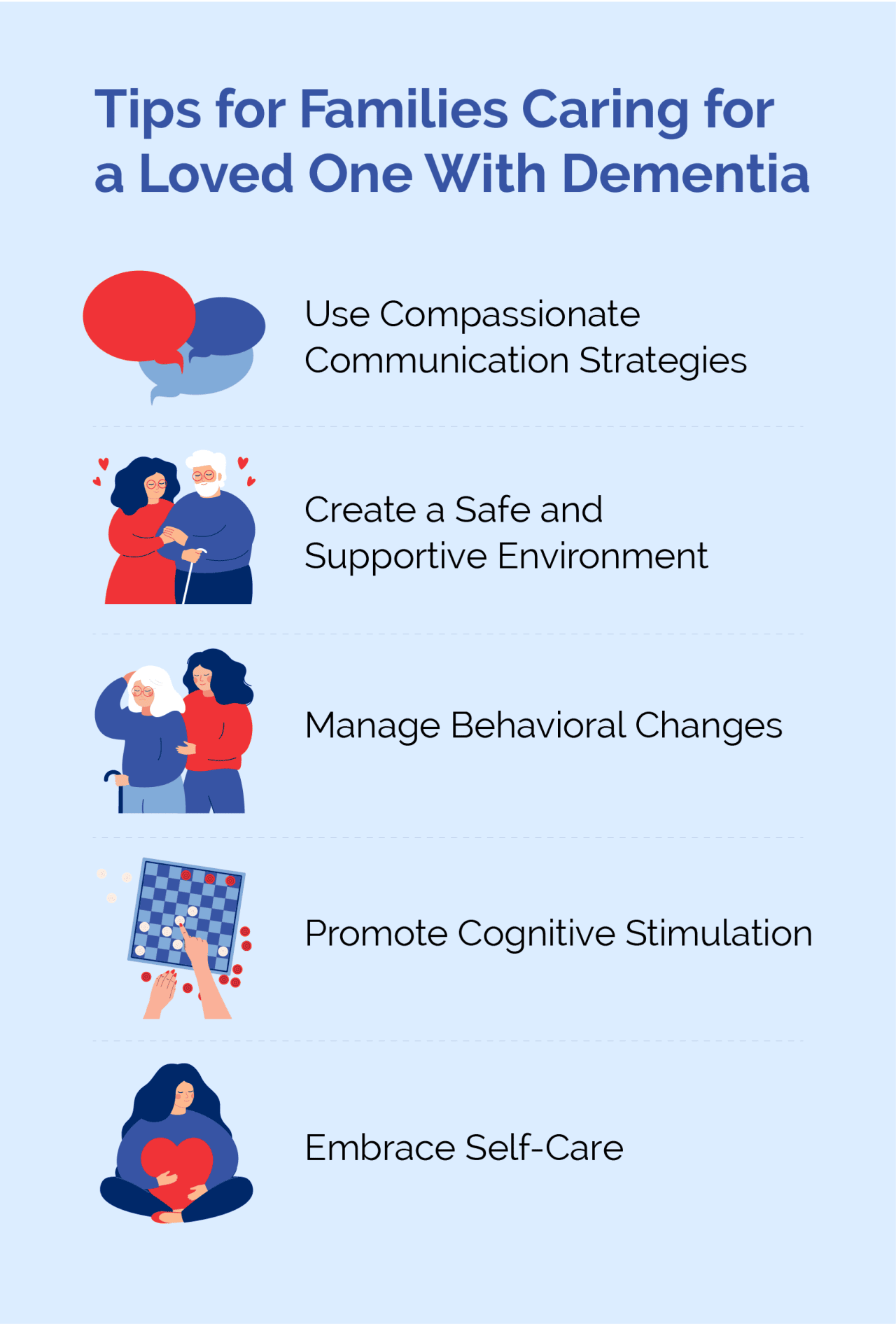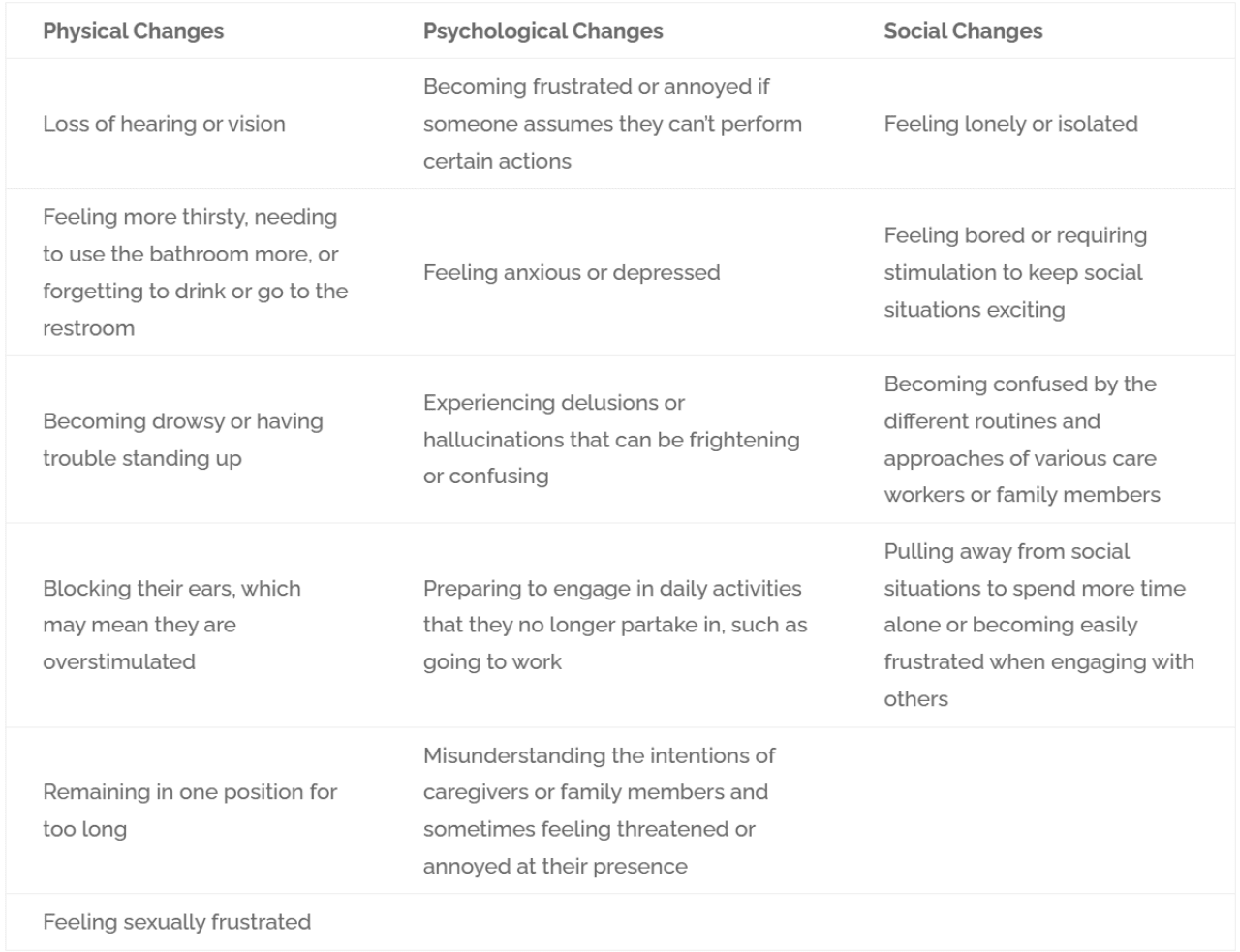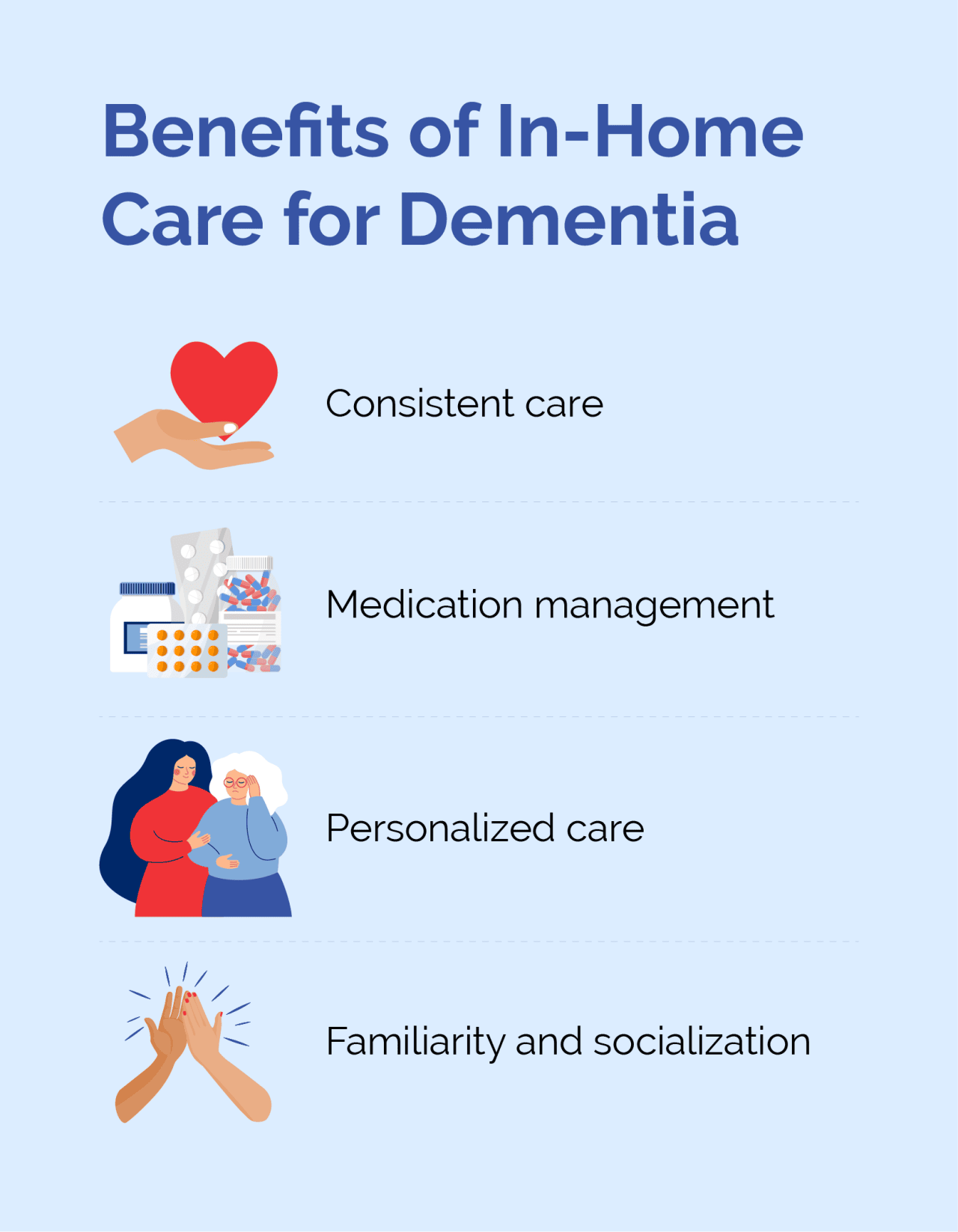Older people living with dementia require ongoing support, understanding, and care. For many family members, caring for their loved one brings many responsibilities. Sometimes, it can be overwhelming.
If you’re caring for a relative with dementia, remember that it’s OK to ask for help. This guide from Village Caregiving outlines five simple steps to care for your loved one with dementia.
Dementia is a medical term used to describe the symptoms associated with the loss of cognitive functioning. It interferes with a person’s thinking, remembering, and reasoning, which affects their everyday life. Around one-third of all people over the age of 85 have some form of dementia.
Dementia progresses from the early stage to the middle, then to the late stage. In the early stages, individuals may experience symptoms like mild memory loss and changes in mood and behavior. However, as the disease progresses, they may face severe memory loss and become fully dependent on others for basic needs and daily functions.
The progressive nature of dementia takes a toll on the family members who typically become the family caregiver. It makes caring for a parent with dementia at home more challenging and calls for ongoing support.
Dementia and its unpredictable symptoms can make it challenging. Here are some tips to support your loved one to cater to their needs and yours:

Supporting a person with dementia can pose challenges for caregivers when it comes to communication. People with dementia may have trouble remembering things. They can become agitated when they can’t find the right words to respond with. As their ability to process information deteriorates, their responses may be delayed and they might appear frustrated.
As a family caregiver, it’s important to understand that the disease causes changes in communication. Don’t take any frustrations personally. Try out some of these strategies when talking to someone with dementia:
People with dementia typically prefer a home environment that’s comforting and familiar. Any changes in the environment can cause confusion and distress. The home should also be safe, with minimal clutter and restricted access to potential hazards.
Research shows that environmental design for dementia is associated with higher levels of independence and well-being for older people with cognitive, physical, and sensory impairments.
Depending on the stage of dementia, the person may experience symptoms that can affect how they navigate the environment. Some things you might notice include:
As a family caregiver, you can take certain steps to make the home more comfortable and safe for your loved one with dementia. It’s important to strike a balance between removing hazards and not restricting freedom. You can make these adjustments to the environment when caring for a parent with dementia at home:
Remove Hazards
People living with dementia may be prone to safety hazards in the home. Over 200,000 seniors visit the emergency room every year because of bathroom-related injuries, so pay special attention to this area. Here are some steps you can take to minimize hazards:
Prepare Emergency Numbers
Set up the home with easy access to emergency contacts and medicines. Keep a list of emergency phone numbers in an accessible place, like on the refrigerator. Include the details for the fire department, local police, and poison control. If you have a family caregiver or other health care providers, note down their contact information as well.
Clear Walkways
Older adults who have experienced a traumatic fall-related injury are more than 20% likely to be diagnosed with Alzheimer’s disease, a type of dementia. Clearing walkways is important to prevent falls. Take these steps to make those paths safer:
Create Calm Spaces
The home should keep the person living with dementia safe from potential hazards. It should also offer them independence and social interaction. Use familiar and calming decor to help them feel relaxed. Keep areas clear for social engagement and hobbies.
Even small changes, like setting up medication reminders or labeling cupboards, can make a big difference. They can help maintain a space that aids independence while preventing panic.
People have the same basic physical, psychological, and social needs. Dementia affects language processing and production, making it difficult for individuals to communicate or address their needs. As their family member, you may notice the following physical, psychological and social changes:

How can you support a person with dementia through these physical, psychological and social changes? As a family member, you can follow these steps to help comfort and support them:
Cognitive stimulation (CS) is a type of mental exercise developed specifically to help people with dementia engage in activities that stimulate thinking and memory. When caring for a parent with dementia at home, it’s crucial to provide them with these activities as early on as possible.
CS involves structured activities tailored to the individual’s unique interests. As a family member, you might know what the person is passionate about. The point of these activities isn’t just to fill time. It fills their cups with things they love doing while enhancing memory and concentration. Here are some examples of activities you can try, but note that it’s best to try these under a professional’s supervision:
As a family member, caring for your loved one with dementia is a true act of selflessness. It often leads to sacrifices, financial strain, social withdrawal, and sometimes family conflict.
Know that it’s OK to take a break and pay attention to your priorities. You can’t pour from an empty cup.
If you ignore your own feelings and priorities, you may experience caregiver burnout, which can lead to fatigue, social isolation, and irritability. Implement stress-reduction techniques like meditation, yoga, and exercise. Ensure you’re well-nourished and make time to partake in activities that bring you joy.
Don’t hesitate to ask for help, whether from other family members or hiring in-home care for dementia. If possible, schedule days when other family members can take over. You can also hire day care services where the individual living with dementia can get access to professional care, while you can enjoy some time to yourself.
In-home care for dementia can offer the one-on-one attention the individual needs. The family can still provide their support and attention, but they will be relieved from the complexities of care that can cause burnout. It doesn’t mean that you don’t care — it shows just how much you do care. As the disease progresses, the person with dementia may experience cognitive decline and mobility issues that call for professional intervention.

Some benefits of professional care for people with dementia include:
There are steps you can take as a family member to care for and support your loved one with dementia. You can create a more comfortable living space, provide stimulation, and use proper communication strategies.
It’s just as important to take care of yourself. Call in-home care for support when you need it, and don’t hesitate to take time off so you can fill your cup.
This story was produced by Village Caregiving and reviewed and distributed by Stacker.
Reader Comments(0)